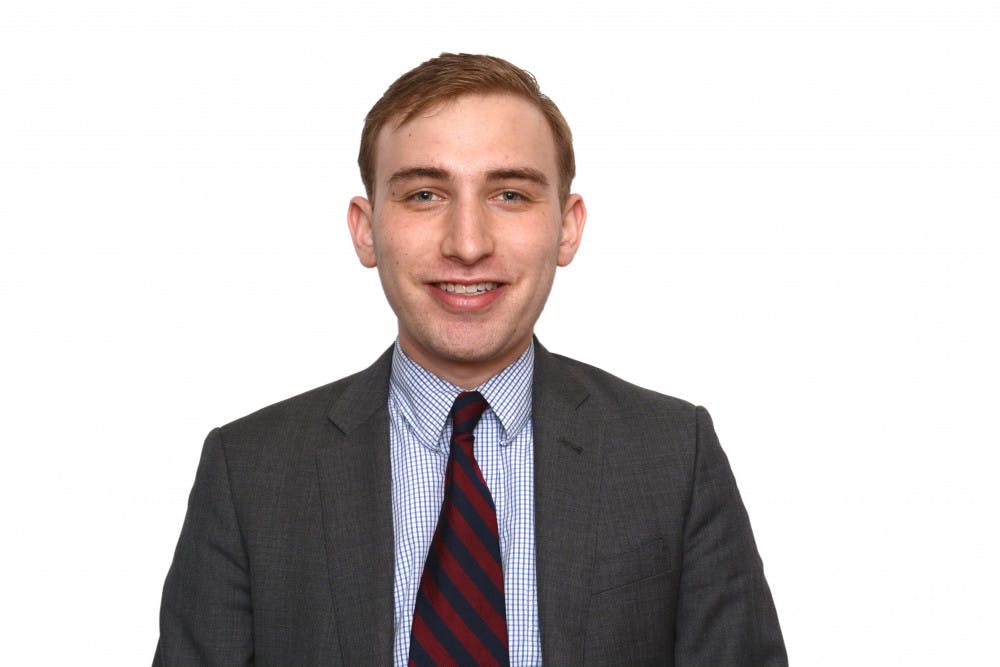Would you listen to Albert Einstein’s political counsel? Terence Tao’s opinion on drug policy? Ernest Hemingway’s management advice?
When someone is very smart or accomplished in one specialty, we tend to accept that person as a “universal expert” — someone we can rely on for answers on just about anything. But this is a fallacy. Just because someone is intelligent or has a high IQ does not mean that the person is somehow knowledgeable about all things. In fact, “universal experts” don’t exist.
I first considered this phenomenon after watching a Big Think video of Bill Nye — you know, from the popular children’s television show “Bill Nye the Science Guy.” Nye was speaking, rather authoritatively, about abortion and why he believes a woman should have the choice to abort a baby. The video made rounds over Facebook and garnered hundreds of thousands of views.
My question: What the hell does Bill Nye know about abortion ethics?
After a quick Google search, I found that Bill Nye has just a bachelor’s degree in mechanical engineering (Cornell, 1977). That’s right, Bill Nye isn’t even a Ph.D. He has done a limited amount of academic work in astronomy, but nada in biology, ethics or philosophy. Why, then, would so many people rely on a children’s television host for abortion ethics?
Bill Nye is just one example of a broader problem. At the height of the controversy surrounding the Iran deal, President Obama brought out the big intellectual guns to back him up: Secretary of Energy Ernest Moniz. Moniz is a theoretical physicist and professor at M.I.T. With a Ph.D. in theoretical physics from Stanford University and an appointment at one of the most prestigious universities in the world, it’s safe to say Moniz is one smart cookie.
But what makes professor Moniz an expert on Iranian geopolitics? And yet Moniz’s appearance on “The Late Show with Stephen Colbert” explaining the Iran deal garnered over 170,000 views on YouTube.
The truth is, a person can only become an expert by focusing on and poring over one specialty, usually for years and years. Nobody — not even the smartest person in the world — is born with expertise, and having expertise in one area does not ensure someone knows another.
Consider, for example, Republican presidential candidate Ben Carson. Ben Carson is a bona fide genius. Carson is not just a pediatric neurosurgeon — he was the youngest head of a department at any major hospital across the country. Not only that, he was the head of one of the most influential departments at one of the best hospitals in the world. He separated conjoined twins. He saved lives. According to a New York Times expose, colleagues said that “when [Carson] walked around Hopkins, he was like God.” He accomplished more by the time he was 40 than most of us could dream to accomplish in a lifetime.
Because of his success as a neurosurgeon, we expect Carson to know everything — which makes it all the more surprising when he says (incorrectly) that China invaded Syria or that Joseph built the pyramids to store grain. But before we jump on the “Ben Carson must be an idiot” bandwagon, we should question ourselves: Why do we think that a brilliant neurosurgeon should inherently know about warfare or ancient history? Ben Carson has a brilliant mind and has spent years studying medicine and surgery. But he is no “universal expert” — he may know less about international relations than some international relations majors!
The status of smart people as “universal experts” is not new — but the problem is exacerbated by populist-style news sources like the Huffington Post, ATTN and Buzzfeed. Media isn’t what it used to be, and media sources use these smart people to lend credibility to the news. We trust smart people — it’s easy to have Bill Nye form our opinions for us.
But these universal experts don’t really exist. Instead, let’s rely on the real experts — people who have studied a specialty for years and years. We can rely on Ben Carson for pediatric medicine, Einstein for theoretical physics and Bill Nye for children’s science experiments.
The Daily Pennsylvanian is an independent, student-run newspaper. Please consider making a donation to support the coverage that shapes the University. Your generosity ensures a future of strong journalism at Penn.
DonatePlease note All comments are eligible for publication in The Daily Pennsylvanian.






